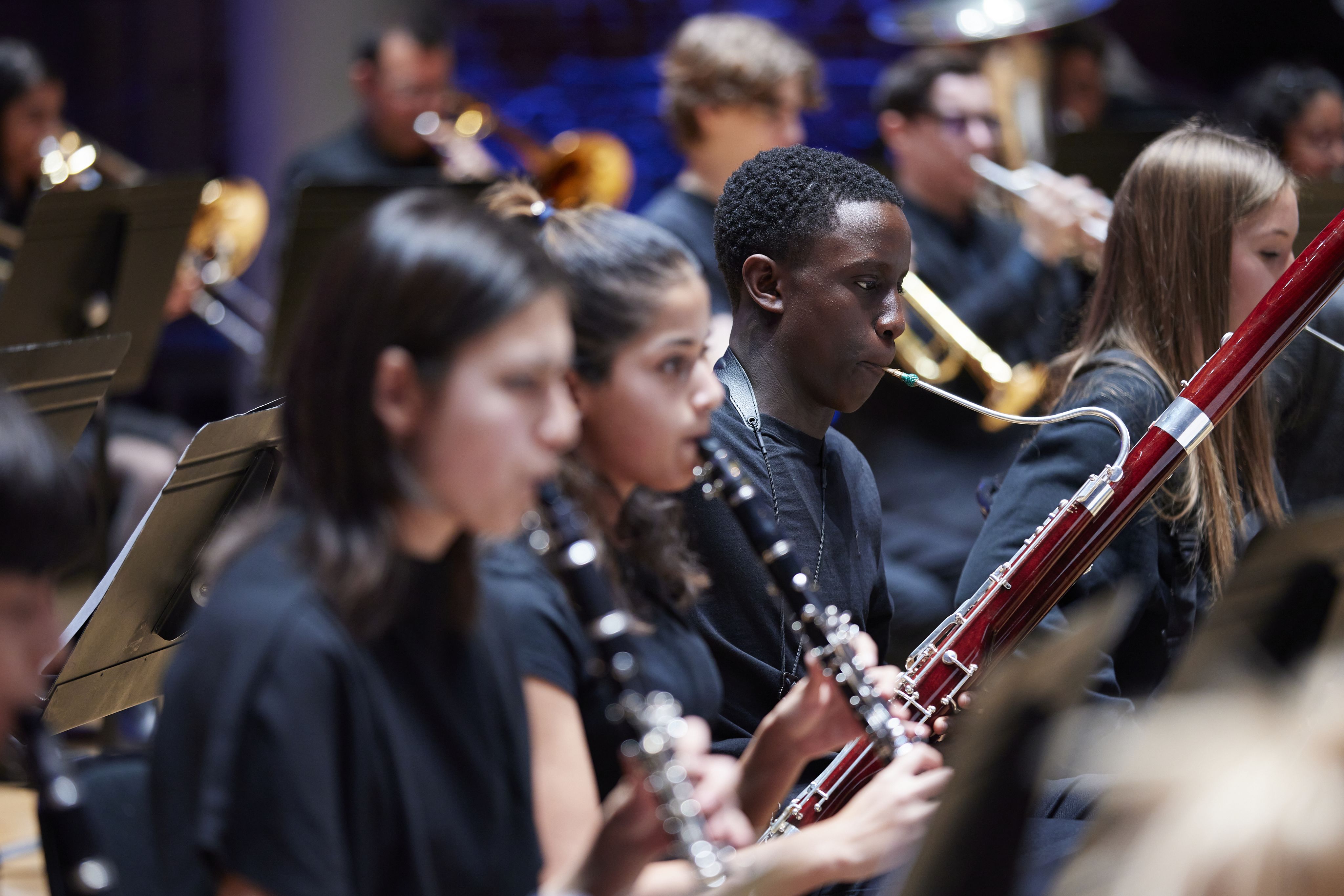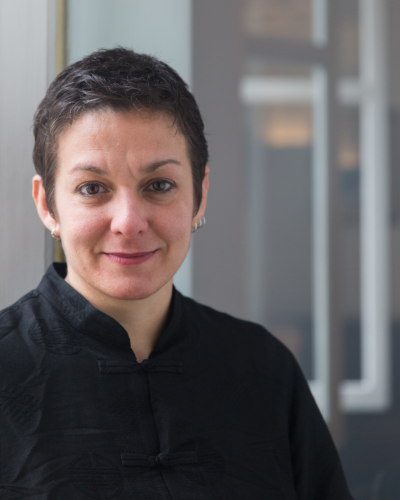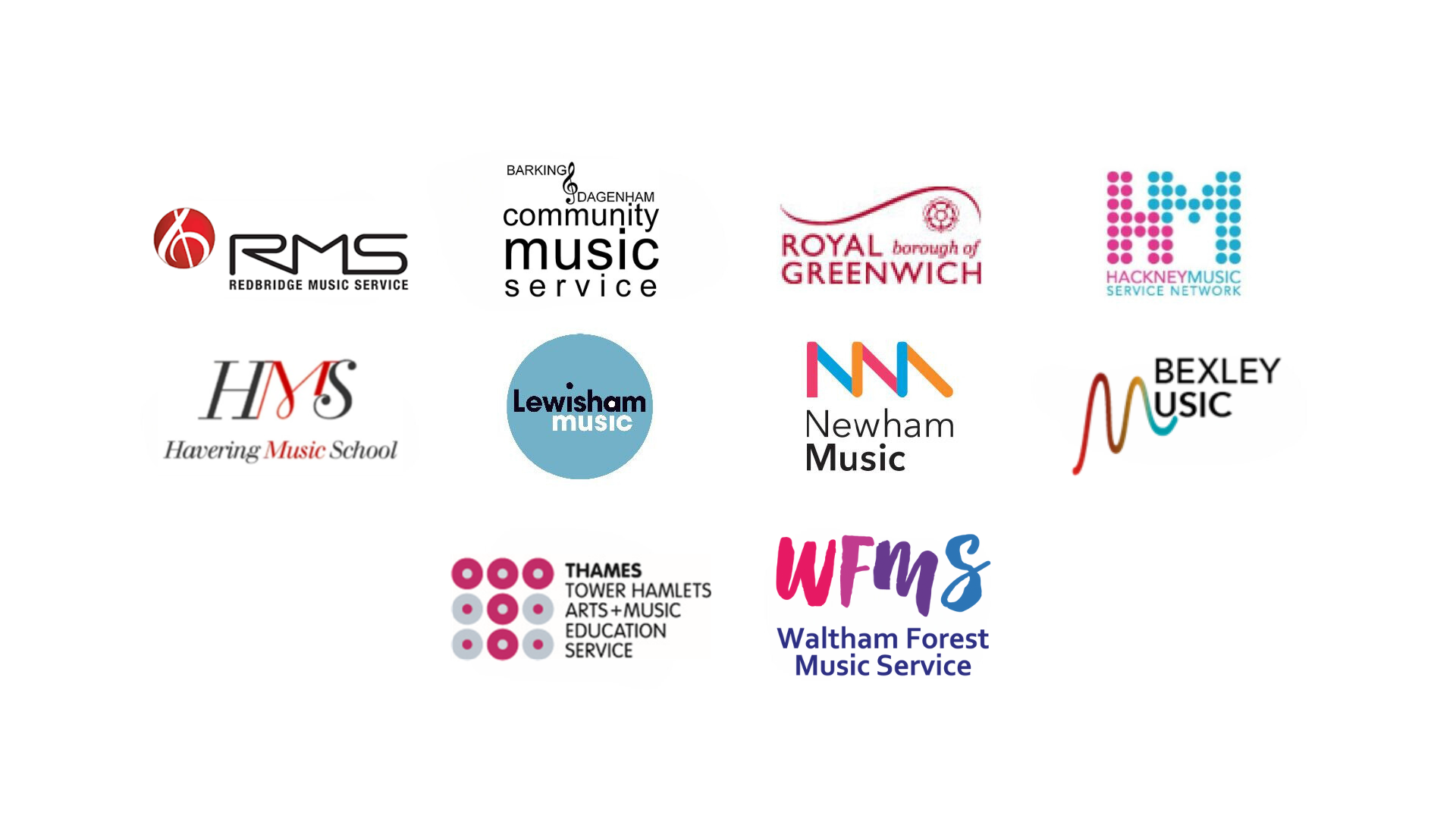LSO Discovery
East London Academy Showcase

TODAY'S CONCERT
Florence Price Dances in the Canebrakes
Max Bruch Serenade on Swedish Folk Melodies: V Marsch
Clara Schumann arr Roger Harvey Polonaise from 'Soirées musicales' Op 6
Darius Milhaud Suite française: I Normandy & IV Alsace-Lorraine
Florence Price arr Elaine Fine Adoration for String Ensemble
John Powell Medley from 'How to Train your Dragon'
Liz Sharma Permutations: II Andante & III Samba
Chris Stock Rumble
Oscar Lorenzo Fernández Batuque, Danza Di Negri
USING YOUR DIGITAL PROGRAMME
- Connect to the free hawksmoor WiFi network.
- Navigate using the menu icon (≡) at the top of the screen.
- Please set your phone to silent and don't use other apps during the music.
ABOUT TONIGHTS CONCERT
The LSO East London Academy presents an evening of inspiring performances, showcasing the talents of its young musicians across full orchestra, string orchestra, brass ensemble, double wind quartet, and percussion quartet. This term, the musicians have crafted an exciting programme exploring themes of folk tunes and dances, weaving through time and styles.
From the rich harmonies of German Romantics such as Bruch and Schumann to the vibrant 20th-century influences of Milhaud and Price, the programme culminates with contemporary works from British composers Powell, Sharma, and Stock, closing with an electrifying burst of Brazilian flair.
This showcase concert marks a special milestone: the culmination of a two-year intensive coaching programme for our woodwind, brass, and percussion members, and the completion of the string players' first term with the Academy. We are thrilled to share the hard work, dedication, and passion of our young musicians and hope you enjoy this celebratory evening.
LSO East London Academy

The LSO East London Academy, launched in 2019, aims to identify and develop the potential of young East Londoners between the ages of 11 and 18. Through the provision of free, inspirational coaching delivered by world-class musicians from the London Symphony Orchestra, the Academy offers high-level training and mentoring to young musicians who show exceptional promise, accelerating their instrumental learning, confidence and aspirations.
The LSO East London Academy aims to represent the diversity of East London, particularly encouraging young musicians from backgrounds currently under-represented in professional orchestras including those from Black, Asian and ethnically diverse backgrounds, and those that experience financial, cultural and practical barriers – a step towards facilitating wider diversification of the professional classical music sector.
To find out more, visit our website.
The LSO East London Academy is run as part of LSO On Track – the partnership between the London Symphony Orchestra and the local Music Hubs across ten East London boroughs: Bexley, Barking & Dagenham, Greenwich, Hackney, Havering, Lewisham, Newham, Redbridge, Tower Hamlets and Waltham Forest.
The LSO East London Academy is made possible through the generous support of the Henocq Law Trust, Harold Hyam Wingate Foundation, The Hodge Foundation, The Irving Memorial Trust, the John Thaw Foundation, The Radcliffe Trust and The Samuel Gardner Memorial Trust.
Florence Price
Dances in the Canebrakes

Florence Price was a trailblazing American composer and the first African-American woman to gain recognition as a symphonic composer. Born in Little Rock, Arkansas, in 1887, Price grew up in a musical household and began composing at a young age. She overcame numerous barriers to have her work performed by major orchestras, blending Romantic-era styles with African-American spirituals and folk influences, honouring her cultural heritage in her compositions. Composed in 1953, Dances in the Canebrakes is one of Price’s final works. This three-movement suite for piano (later orchestrated) reflects the Black American experience, drawing inspiration from Southern cane fields and the rhythmic dances of enslaved communities.
Max Bruch
Serenade on Swedish Folk Melodies: V Marsch

Bruch was a German Romantic composer known for his lush, lyrical compositions, particularly for violin and orchestra. Raised in a musical family, Bruch began composing early and studied with prominent teachers in Bonn and Cologne. His career took him across Europe as a conductor and teacher, with significant positions in Liverpool and Berlin. Bruch's work is often inspired by folk music, blending traditional melodies with his own expressive style. Bruch's Serenade on Swedish Folk Melodies showcases his love for folk traditions, weaving Swedish-inspired melodies into a charming, light-hearted piece for strings, horn, and harp. The work is a blend of graceful themes and lively rhythms, capturing the essence of Swedish folk music through Bruch’s Romantic lens.
Clara Schumann arr Roger Harvey
Polonaise

Clara Schumann was a renowned German pianist, composer, and a central figure of the Romantic era. Celebrated as a child prodigy, she began touring Europe in her teens, captivating audiences with her expressive playing. She remained a respected performer, teacher and advocate for Romantic music throughout her career, promoting works by her husband, Robert Schumann, and composers like Chopin. Composed at just ten years old, Clara’s Four Polonaises originally for piano, has been arranged for brass ensemble. Each piece captures the spirit of the Polish polonaise dance in a lively 3/4 time, with contrasting middle sections called 'Trios' that bring depth to these charming, dance-like miniatures.
Darius Milhaud
Suite française: I Normandy & IV Alsace-Lorraine

Darius Milhaud was a prolific French composer whose diverse work spans nearly every musical genre. Born in Marseilles and raised in Aix-en-Provence, Milhaud was immersed in music from an early age, surrounded by local songs and vibrant street sounds. After fleeing to the United States during World War II, Milhaud became deeply influenced by American culture, particularly jazz and popular music. This fusion of influences is evident in his works, which blend French folk traditions and contemporary influences. Milhaud's Suite française reflects both his French heritage and the openness to new ideas that defined his time in America. Each movement captures the spirit of a French region: 'Normandy' features lively folk melodies, while 'Alsace-Lorraine' conveys the gravity of war through sombre, march-like themes, evoking the resilience of a border region shaped by conflict.
Florence Price arr Elaine Fine
Adoration

Adoration was originally written for solo organ, drawing on Florence Price’s early experience as a church organist. Reflecting her unique voice, this serene and expressive piece is often performed in various arrangements today, showcasing Price’s gift for melody and reverence for spiritual themes.
John Powell
Medley from 'How to Train your Dragon'

John Powell is a celebrated English film composer known for his vibrant, emotional scores. Born in London, he was inspired to pursue music after attending rehearsals with his father, a musician in the Royal Philharmonic. Powell’s early fascination with composers like Aaron Copland and Stravinsky influenced his dynamic orchestration and rich melodies, now signature features of his work in animated and action films. The How to Train Your Dragon medley captures the adventurous spirit and soaring landscapes of the beloved film series. Featuring themes like 'Coming Back Around,' 'Dragon Battle,' 'Test Drive,' and 'This Is Berk,' the score is marked by energetic rhythms and lush orchestration that evoke the thrill and wonder of dragon flight. Powell’s music blends Celtic-inspired melodies with epic orchestral moments, bringing the fantasy world of Berk to life.
Liz Sharma
Permutations: II Andante & III Samba

Liz Sharma is a versatile British composer and educator with a passion for world music and inclusivity in the arts. Trained at Trinity College of Music, she has dedicated much of her career to music education in ethnically diverse communities, where she led numerous student ensembles. Sharma has composed extensively for youth and community ensembles, and her broad experience in teaching and conducting reflects her commitment to making music accessible to all.
Permutations showcases Sharma’s love for diverse musical styles and ensemble collaboration. Originally composed for a double reed ensemble, the piece has been adapted for various wind groups. The second movement, 'Andante', is reflective and calm, while the third movement, 'Samba', bursts with lively rhythms, allowing each part to shine through intricate combinations, or 'permutations', of instruments.
Chris Stock
Rumble

Chris was born in Chelmsford, Essex and studied at the Royal College of Music. He joined the BBC NOW in 1983 and became Principal Percussionist in 1987. When the orchestra created an education department he was one of the first players to work for it and he continues to take part in many varied projects. Chris taught both instrumental and workshop leading skills at the Royal Welsh College of Music and Drama for over 24 years, and has trained many of the professional percussionists working in Wales today. Struggling to find anything that encapsulated the energy of the Royal Welsh College of Music & Drama Percussion Ensemble, Stock took it upon himself to write Rumble for the group to perform. The piece was composed on two coach journeys to and from Swansea and was Stock's first ensemble piece.
Oscar Lorenzo Fernández
Batuque, Danza Di Negri

Oscar Lorenzo Fernández was a Brazilian composer and conductor, known for fusing classical techniques with Brazilian folk themes. Of Spanish descent, he studied at Brazil's Instituto Nacional de Música and later founded the Conservatório Brasileiro de Música, which he led until his death. His early works reflect Romantic and Impressionist influences, but by the 1920s he embraced a more nationalist style, incorporating Brazilian rhythms and folk elements.
Batuque, one of Fernández's most energetic pieces, originates from Reisado do pastoreio, a suite celebrating Brazil's Epiphany traditions. This rhythmic dance captures the vibrancy of Brazilian folk celebrations and has since gained popularity as a standalone orchestral work.
On Stage

Natalia Luis-Bassa
conductor
Natalia is a dynamic conductor and a passionate advocate for young musicians’ education.
As part of her career, she has promoted the conducting craft and orchestra playing for young people, and believes that the provision of music education should be a right available to everyone.
Natalia has established numerous successful partnerships with a wide variety of organisations in the UK and globally.
Her record-breaking accomplishments include being the first person to graduate with a degree in Orchestral Conducting in her native country Venezuela as well as being the first woman to hold a permanent position as Professor of Conducting at the Royal College of Music.
As part of her postgraduate studies at the Royal College of Music, she was awarded the RCM Junior Fellowship in opera conducting. She then completed a master's degree at the University of Huddersfield, where she was a part-time lecturer.
Since 2020, she has been Principal Guest Conductor of the Oxford University Orchestra. Natalia is committed to widening access to the performing arts and providing opportunities for everyone to get involved.
LSO Members & Friends
Belinda McFarlane violin
Naoko Keatley violin
Lyrit Milgram violin
Helena Thomas violin *
Jenny Lewisohn viola
Amanda Truelove cello
Phoebe Clarke double bass
Hadessah Nanjo double bass **†
Sharon Williams flute
Anya Cookson flute **
Maxwell Spiers oboe
Andrew Harper clarinet
Joost Bosdijk bassoon
Shaun Thompson alto saxophone
Jonathan Maloney horn
Adam Wright trumpet
Sean Hartman trumpet *
Jim Maynard trombone
Charlie Jones tuba
Laura Bradford percussion
Matthew Farthing percussion
Cliodna Shanahan piano
*Member of Orchestral Artistry, part of the Guildhall Artist Masters programme
**Member of LSO Pathways
† East London Academy Alumni
LSO East London Academy
Flutes
Anisa Campbell
Brigita Bernotaviciute
Mayukhjit Chakraborty
Oboes
Aoife O’Mahony
Oluwatobi Aroyewun
Clarinets
Samuel Gratton
Sophia Nallalingham
Zana Barnes
Bassoons
David Kimaro
Eleanor Higgins
Horns
Alice Jarrett
Mim Asker
Trumpets
Samuel Bryant
Leela Assi
Laurence Smith
Trombones
Edward Fields
Zahra Thaha
Tommy O'Sullivan
Tuba
Jeshurun Nanjo
Percussion
Emil Alandry-Kåri
Toby Carpenter
First Violins
Jennifer Smith
Matteo Ishac-Araya
Destiny Oveto
Shamayam Hogan
Second Violins
Chloe Rosebelle Zuiderwijk
Anisa Jeler
Sofia Harris Tafri
Olivia McCollin
Madeleine Arnold
Violas
Jedidiah Andilie Thwala
Jasmine Neguib
Angelo McFarlane-Green
Shahriar Meah
Cellos
Dorrinda Kitaka
Iyannah Laville
Nosheen Chowdhury
Beatrice Afflek
Noah Martin
Double Basses
Joel Elonge
Yannis Sissuh
With thanks to all the London Symphony Orchestra musicians, Guildhall School musicians and guest artists who have worked with the LSO East London Academy over the term: Miya Väisänen, Laura Dixon, Matthew Gardner, Eivind Ringstad, Mizuho Ueyama, Laure Le Dantec, Paul Milner, Trish Moynihan, Lorraine Hart, Lois Au, Dan Curzon, Carl Woodcroft, Helena Smart, May Dolan, Anna Beryl, Fraser Gordon, Flora Bain, Sam Kinrade, Catherine Haggo, Evangeline Tang, Kira Doherty, Dominic Tyler, Emmanuel Joste, Dot Vogel, Massimo Martone and Rachel Leach.


